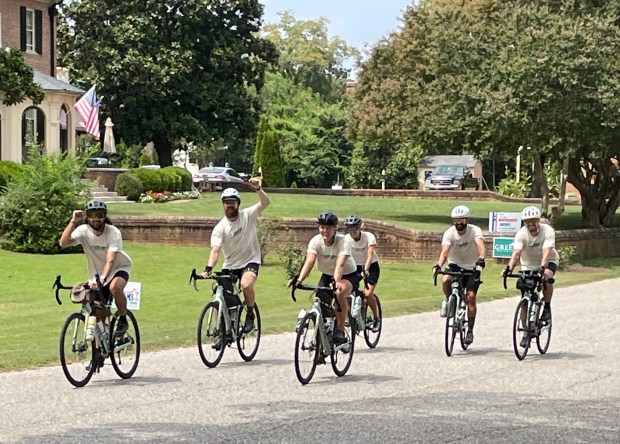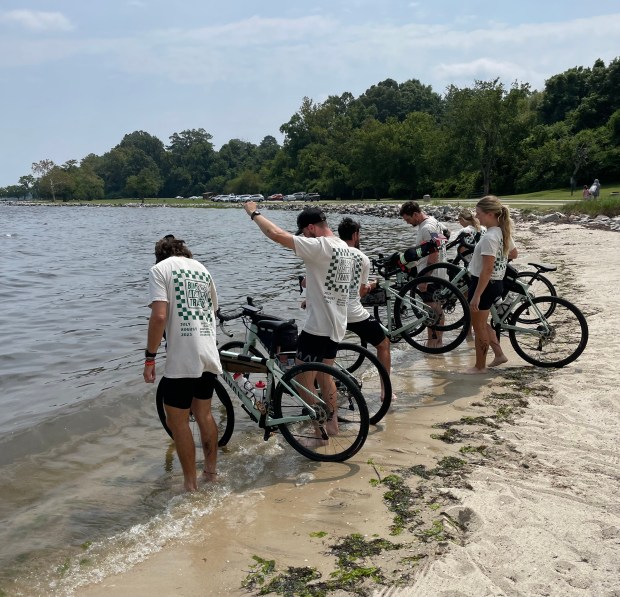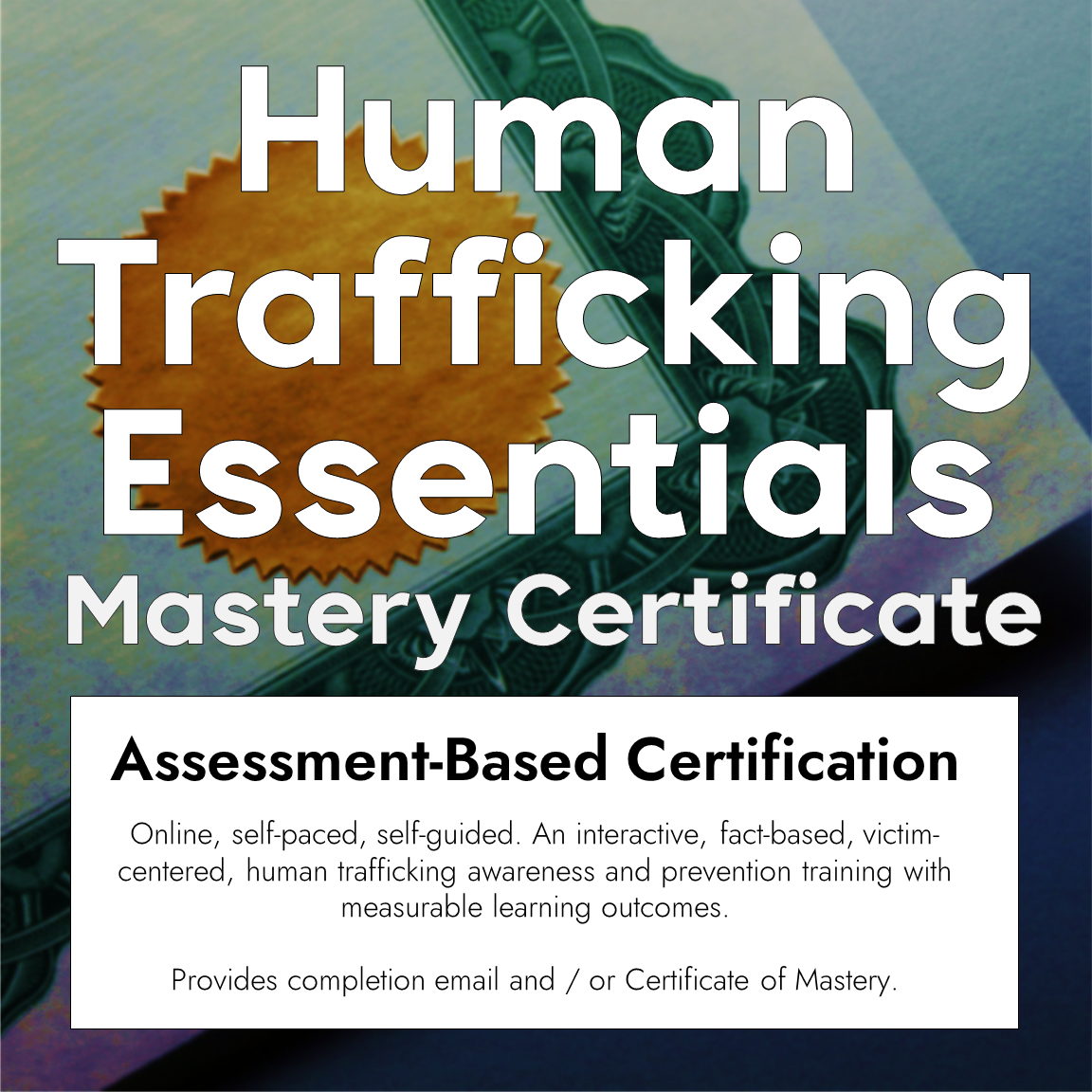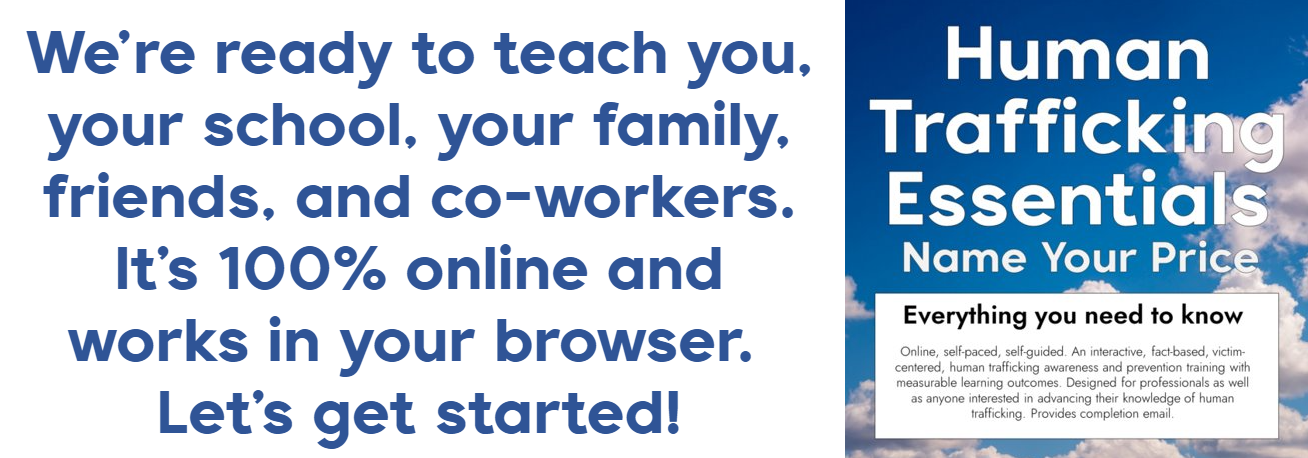Not even wild dogs could keep these cyclists from their cross-country goal: Raising awareness for human trafficking
YORKTOWN — The six bicyclists who pulled into Yorktown on Tuesday after a 3,775-mile cross-country journey specifically wanted to do something uncomfortable.
They were riding for an uncomfortable cause, after all: the worldwide fight against human trafficking. And during 53 days on the road, they endured painful crashes, flat tires, aching body parts, dehydration, blistering sunburn and even a few wild dog chases.
Yet as the group celebrated at Yorktown Beach, they weren't entirely ready to be done. “I think I will miss it a lot,” said Evan Pierson, 27. “It was very hard, but it's not often in life you get to do something so amazing.”
Pierson and his fellow riders, all California residents with little previous road biking experience, took the summer off work to ride for Bike Against Traffic, also known as BAT. The nonprofit in Redding, California, plans cycling events to raise awareness and funds to combat human trafficking.
Pedaling from July 1 to Aug. 22, Team BAT raised more than $50,000 for Unseen Ministries, a North Dakota-based nonprofit that partners with 28 anti-trafficking groups in 41 countries. Those organizations, in turn, provide services to trafficking victims and collaborate with local governments and law enforcement agencies on investigations and raids.

“We wanted to do something crazy to get attention on us, and then put attention on this issue,” said Anica Pierson, 26, Evan Pierson's sister-in-law and a friend of Unseen's founders. “We're not the type of people who say, ‘It would be so cool to do that.' We say, ‘Let's do that.'”
According to Unseen, an estimated 50 million people — 10 million of them children — are trapped in a form of modern slavery that includes sexual exploitation and/or forced marriage or labor. War, poverty, climate change and social media have all contributed to the epidemic.
“As you learn more about the problem, you realize how close to home it is,” said Tanner McDonald, 30. “A lot of people think it's just a foreign land thing, but it happens all over the United States, too. It's heartbreaking.”
Team BAT largely followed the TransAmerica Bicycle Trail, with a few deviations to save time. They started in Florence, Oregon, and ended at the Yorktown Victory Monument, crossing through Idaho, Montana, Wyoming, Nebraska, Iowa, Missouri, Illinois and Kentucky.
Kevin Garyst, a filmmaker who lives in Switzerland, shot footage of the ride for a planned documentary. The bikers had custom-made T-shirts and bumper stickers sporting their slogan, “Do Something that Does Something,” plus “Bike Against Traffic” with a donation link.
Averaging 80 miles most days, the group biked four to seven hours daily depending on distance and terrain. They alternated between larger and smaller, gained a total of 162,000 feet in elevation and battled headwinds for all but three days of the trip. They took just four days off, with three “active rest days” of 20 to 60 miles.
Flat tires struck multiple times a day; Team BAT calculated that they spent roughly 13 hours fixing them. The most treacherous tire stretch likely was in Oregon, where many roads were littered with shards of glassy volcanic rock.
Evan Pierson's parents drove alongside the group, which also included his older brother Justin, 31, in a camper and a second support car. They shopped for groceries, cooked meals and found RV parks, campsites and once, an empty field in Wyoming for overnight stays.
Other than a rare hotel night, the bikers slept in the camper or in a small tent. They pigged out on gas station snacks, sheltered beneath overpasses during storms and met countless well-wishers who bought them food, helped with injuries and learned about their cause.
Initially, all six were in serious pain. “Butt and hands were the worst,” said Aasta Waugh, 29, who had never biked more than 20 miles at once before. “My toes and hands are still numb, but we feel great,” added Jordan Waugh, 30, Aasta's husband, as they stood in Yorktown.
In Nevada, McDonald fainted from dehydration when the heat index topped 110 degrees. He flew over his handlebars and woke up in a ditch, where he promptly passed out a second time. With help from a nurse who drove by, he emerged only with sore ribs.
Jordan Waugh suffered such a bad sunburn on his nose that he developed a bacterial infection and needed antibiotics. Anica Pierson hit a piece of debris on the shoulder of a two-lane highway in Missouri and was pitched into the road; her husband quickly carried her to safety.
In Kentucky, stray dogs chased Team BAT for miles, although most were friendly. In Idaho, the group had a powerful chance encounter in a coffee shop with a woman who had been trafficked for close to 20 years and thanked them repeatedly.

By unanimous decision, the team described Nebraska as the toughest stretch of the route — despite the kindness of its residents — due to repetitively flat roads, steamy temperatures and headwinds that topped 10 miles an hour one day.
In Yorktown, two sets of Team BAT parents waited to greet their children with cheers and champagne as they rode in from Chickahominy State Park. The bikers dipped their tires into the York River — not quite the Atlantic Ocean, but still a bookend to a first-day dousing in the Pacific — and headed to a campground in Virginia Beach in advance of a celebration dinner.
The bikers planned to drive back to California, with stops to see family, before returning to their jobs (Aasta and Justin are tattoo artists, Anica is a teacher and plant nursery employee, Evan is a video editor and songwriter, Jordan works for a tech company and Tanner is a barista.).
As for when they'll get back on a bike again, the answer was surprising: soon. “We're just adventurous people,” Justin Pierson said, as the other five nodded along. “We like challenges, not sitting still.”
See more about Team BAC on Instagram @ #bikeagainsttraffic.
Alison Johnson, [email protected]
This “Eyes on Trafficking” story is reprinted from its original online location.
Fair Use Notice: The PBJ Learning Knowledge Vault is dedicated to advancing understanding of various social justice issues, including human trafficking and related topics. Some of the material presented on this website may contain copyrighted material, the use of which has not always been specifically authorized by the copyright owner. We are making such material available in our efforts to promote education and awareness of these important issues. There is no other central database we are aware of, so we put this together for both historical and research purposes. Articles are categorized and tagged for ease of use. We believe that this constitutes a ‘fair use' of any such copyrighted material as provided for in section 107 of the US Copyright Law. In accordance with Title 17 U.S.C. Section 107, the material on this site is distributed without profit to those who have expressed a prior interest in receiving the included information for research and educational purposes. For more information on fair use, please visit: “17 U.S. Code § 107 – Limitations on exclusive rights” on Cornell Law School's Legal Information Institute.

ABOUT PBJ LEARNING
PBJ Learning is a leading provider of online human trafficking training, focusing on awareness and prevention education. Their interactive Human Trafficking Essentials online course is used worldwide to educate professionals and individuals how to recognize human trafficking and how to respond to potential victims. Learn on any web browser (even your mobile phone) at any time.
More stories like this can be found in your PBJ Learning Knowledge Vault.
EYES ON TRAFFICKING
This “Eyes on Trafficking” story is reprinted from its original online location.
ABOUT PBJ LEARNING
PBJ Learning is a leading provider of online human trafficking training, focusing on awareness and prevention education. Their interactive Human Trafficking Essentials online course is used worldwide to educate professionals and individuals how to recognize human trafficking and how to respond to potential victims. Learn on any web browser (even your mobile phone) at any time.
More stories like this can be found in your PBJ Learning Knowledge Vault.

